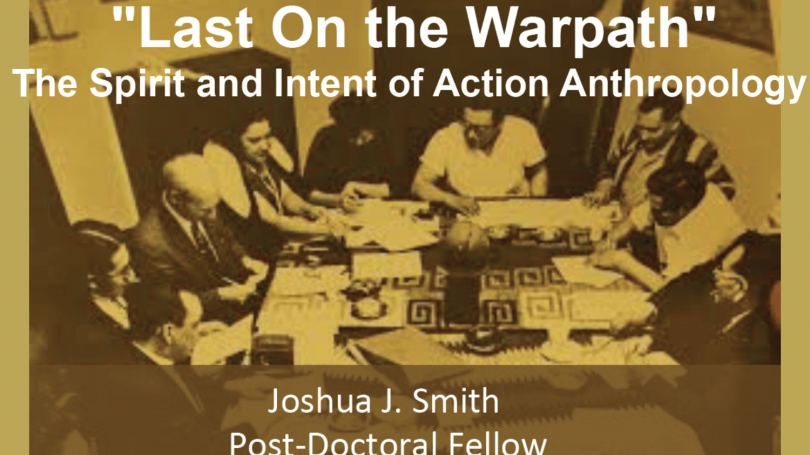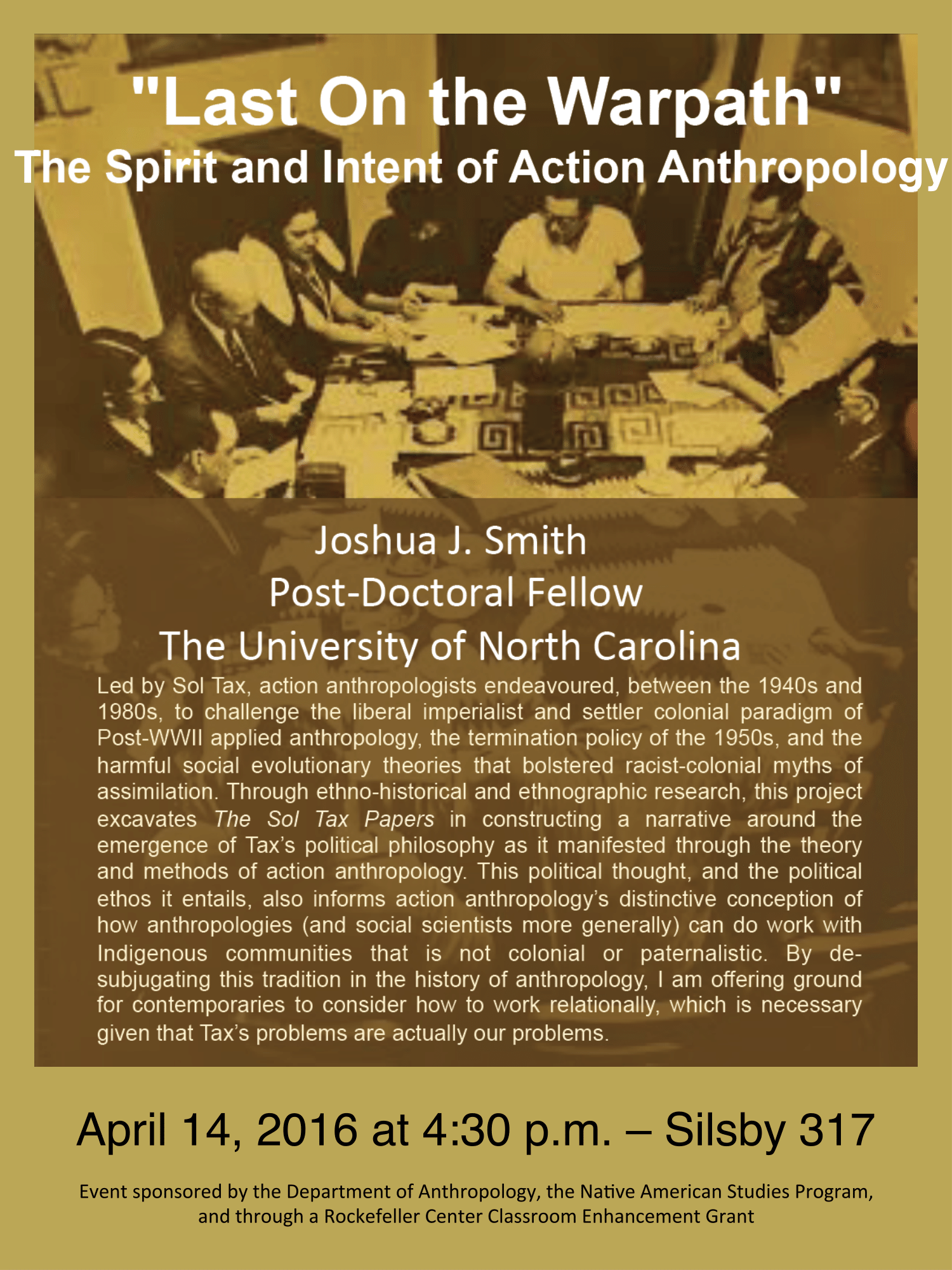

On Thursday, April 14 at 4:30 pm (in Rm 315 Silsby) there will be a joint Anthropology/NAS-sponsored colloquium by Joshua Smith entitled:
'Last on the Warpath': The Spirit and Intent of Action Anthropology
Joshua Smith received his Ph.D. in anthropology last year from the University of Western Ontario and is currently a Post-doctoral Fellow in American Studies at the University of North Carolina, Chapel Hill. Smith's dissertation, bearing the same title as his colloquium talk, dealt with the history of American anthropology and its engagement with Native American activism as exemplified by a well-known US anthropologist Sol Tax (1907-1995).
Between the late 1950s and 1970s Sol Tax' developed and practiced what he called "action anthropology" approach, aimed at solving social problems by facilitating the people's own activism, while also learning from them, and without being paternalistic. Most of his work was with Native American activists, including such luminaries of Bob Thomas (Cherokee). In 1961, Tax helped coordinate the American Indian Chicago Conference, which brought 700 Native Americans from more than 80 tribal groups to the University to prepare a "Declaration of Indian Purpose." The declaration sought for the first time to present a unified Native American position on the relation of Native people to the federal government.
In Smith's own words, "Through ethno-historical and ethnographic research," his project "excavates The Sol Tax Papers in constructing a narrative around the emergence of Tax’s political philosophy as it manifested through the theory and methods of action anthropology. This political thought, and the political ethos it entails, also informs action anthropology’s distinctive conception of how anthropologies (and social scientists more generally) can do work with Indigenous communities that is not colonial or paternalistic. By de-subjugating this tradition in the history of anthropology, I am offering ground for contemporaries to consider how to work relationally, which is necessary given that Tax’s problems are actually our problems."
Others have written about Tax and action anthropology, but Joshua is the first scholar to have access to Tax's entire archive and interview his family members as well Native American students and activists who studied and worked with him. Most importantly he has a new perspective on Tax's anthropology, arguing that the man was ahead of his time because he promoted Native American sovereignty.
This event is being cosponsored by the Department of Anthropology, the Native American Studies Program, and through a Rockefeller Classroom Enhancement Grant.
Check out the event poster:
